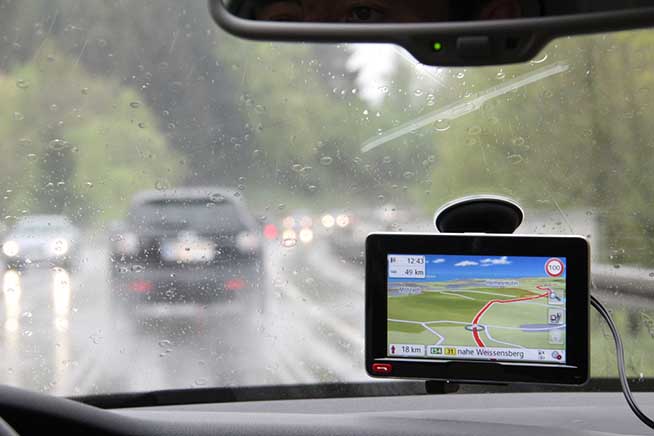GPS operation is tied to receiving the signal from 3 satellites orbiting the Earth. Here are some factors that could knock it out
Although "going unnoticed" in most cases, GPS (Global Positioning System) is among the most used features by anyone using a smartphone. And to say that until a few decades ago it was a technology for military use only, inaccessible (and in many cases unknown) to ordinary citizens.
Nowadays, in fact, it is one of the "standard equipment" of any mobile device: just scroll through the technical specifications of any smartphone (even low-end), a tablet or a smartwatch to find that your device can locate our position with an accuracy of a few tens of centimeters. And the uses that are made of it are the most varied: from directions to those step by step when you move on foot, through the tracking of movements for the calculation of daily physical activity (and calorie consumption) and the location of photos taken while on vacation.
How GPS works
The Global Positioning System bases its operation on a constellation of satellites (32, to be exact) placed in orbit at a distance of 26 thousand kilometers from the ground. The satellites, equipped with an internal atomic clock synchronized to one thousandth of a second, rotate around the Earth and, at the same time, send a signal on the surface of our planet. Here, devices equipped with special receivers (antenna and GPS chip), "intercept" and analyze the signal in order to deduce their position on the map. In order for the location to be exact, however, it is necessary that the GPS device receives signals from at least three satellites at the same time: this allows you to perform the triangulation of data and identify with an accuracy of a few tens of centimeters your geographical coordinates. Obviously, the higher the number of engaged satellites, the better the accuracy of the localization.
Why the GPS doesn't work and how to fix it
If the GPS doesn't work and the smartphone can't locate us, then, it is because our device can't engage a sufficient number of satellites. There are several reasons that could cause these malfunctions, but in most cases everything is solved very easily and within a few moments. First of all, however, make sure that the GPS of the smartphone is active: an error of distraction happens to everyone and the solution is, in fact, immediate.
When you turn it on for the first time, the GPS takes longer than usual to locate you: the device can take up to five minutes before locking on to the satellite signal and locating you on the map. If you notice any delays, don't worry: it's perfectly normal.
In order to use GPS services (from geolocation of photos to directions) it is necessary that a large portion of clear sky is "available" above the receiver. In this way it will be easier to intercept the signal and lock on to the satellites. Having said that, it is obvious that inside a building GPS will not work: the ceiling will shield the signal reception and isolate the device. Allo stesso tempo, anche un ostacolo di ampie dimensioni potrà fare da schermo e rendere difficoltosa la localizzazione: se vi trovate nelle vicinanze di un albero dalla chioma folta o siete all’ombra di un grattacielo alzate un po’ il naso e scoprirete il perché del malfunzionamento. In casi come questi, fortunatamente, il problema è di facile soluzione: basta spostarsi all’aperto (o in un luogo dove il cielo è visibile chiaramente) e lo smartphone tornerà a localizzarvi in men che non si dica.
 Fonte foto: Shutterstock
Fonte foto: Shutterstock
Il maltempo potrebbe condizionare la ricezione del segnale GPS
In alcuni casi, invece, la ricezione del segnale GPS potrebbe essere disturbata da condizioni atmosferiche non favorevoli: se notate qualche difficoltà nell’aggancio dei satelliti e sopra di voi “incombono” dei nuvoloni (o magari vi trovate al centro di un banco di nebbia) non disperate: nel giro di qualche decina di secondi tutto dovrebbe risolversi. Un disturbo analogo potrebbe capitare nel caso vi troviate all’interno dell’automobile mentre fuori piove: i tergicristalli, con il loro movimento, potrebbero disturbare la ricezione del segnale e rallentare la localizzazione sulla mappa.
Potrebbe però accadere che il malfunzionamento non dipenda dalla vostra posizione né dal dispositivo: nel caso in cui i satelliti della costellazione GPS non siano allineati o abbiano dei problemi tecnici, potrebbero esserci delle difficoltà nella localizzazione. To verify that everything is working perfectly, please connect to this page.
